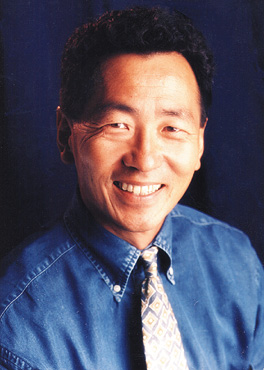|
ASIAN AMERICAN BUSINESS Scott Oki earned a $100-million early retirement by turning a struggling young Microsoft into a global software leader. |
CONTACT US
|
ADVERTISING INFO
© 1996-2013 Asian Media Group Inc
No part of the contents of this site may be reproduced without prior written permission.
MICROSOFT'S ASIAN PIONEER
PAGE 1 of 10
 he man who created Microsoft and its winning culture had the genius to hire
highly effective people and turn them loose. The most spectacularly
successful of Bill Gates's hires is a Japanese American named Scott D. Oki. He
was only 43 when he retired from his job as Microsoft's senior vice-president
of sales and marketing, but by then Oki had already spent a decade growing
it into the world's leading software company.
he man who created Microsoft and its winning culture had the genius to hire
highly effective people and turn them loose. The most spectacularly
successful of Bill Gates's hires is a Japanese American named Scott D. Oki. He
was only 43 when he retired from his job as Microsoft's senior vice-president
of sales and marketing, but by then Oki had already spent a decade growing
it into the world's leading software company.

Upon being hired in 1982, Oki single-handedly conceived, started and
built Microsoft's international operations. Within two years it was more
profitable than Microsoft's U.S. operations. By 1986 Gates knew that Oki's
relentless dynamism was badly needed back home to save the company from
certain disaster. As the new vice president of sales, Oki quickly restructured
Microsoft's operations by firing and laying off nearly half the existing sales
and marketing force. Within five years Microsoft's revenues rose from $100
million to $1 billion while gross profit margins grew from 63% to over 80%,
raising the U.S. division's pre-tax profits to 30%.
Oki's other biggest contribution
to Microsoft's spectacular success may have been convincing Gates and the board of directors to center product development and marketing efforts around
Windows instead of OS/2. By the time he retired Oki was overseeing 3,000
employees.
The stock options Oki amassed during his decade at Microsoft lets him
enjoy a full, fulfilling retirement. He splits his weekdays among his
non-profit Oki Foundation, investing in hi-tech startups, and afternoon
rounds of golf. Weekends and long ski vacations are reserved strictly for his
wife Laurie and their two young sons.
Scott D Oki was born October 5, 1948, three years after his father was
released from Minedoka. Like his famous boss, Oki was born in Seattle, the
eldest of three children. The elder Oki, a Nisei, was a strict father, instilling in
Scott the discipline he would ultimately draw on to work 100-hour weeks
during Microsoft's years of struggle. That discipline hadn't yet taken root
when Oki began at the University of Washington. After squandering 18
months, Oki escaped into the Air Force and spent four years playing in its
Colorado Springs percussion section. His off-duty hours were devoted to
courses at the University of Colorado. By his discharge in 1974 Oki had
racked up almost enough credits for a BA in accounting and information
systems. He graduated magna cum laude and earned an MBA a year later.
[CONTINUED BELOW]
He spent two unhappy years as a data-base programmer for a local
direct-mail company before moving to Palo Alto to join a Hewlett-Packard
startup division selling small business systems. In 1980 Oki and three
fast-track friends secured venture capital to develop and sell turnkey office
management systems for small medical practices. The venture failed but the
experience Oki took away--what he calls "scar-tissue"--would serve him well
at Microsoft.
GoldSea: Did you know Bill Gates growing up?
Scott Oki: Not at all. The first time Bill and I met was when they invited me up for a couple of interviews.
GS: Did you have any interest in programming before you went to college?
Oki: My dad always wanted me to be an electrical engineer. You know how parents are. They kind of have your life pre-defined for you. So going through high school, all my classes were very quantitative--calculus and all the advanced math classes, physics, chemistry and the sciences. PAGE 2
| "All my classes were very quantitative -- calculus and all the advanced math classes, physics, chemistry and the sciences." |
